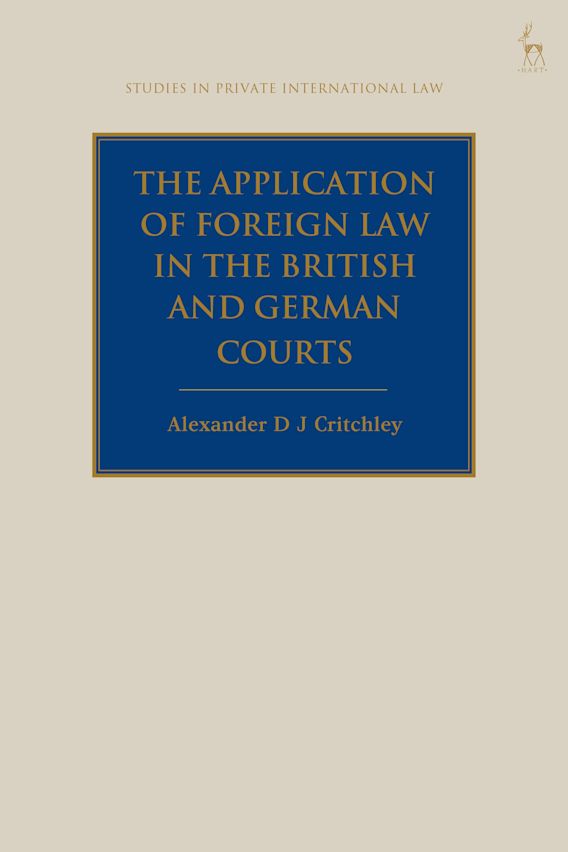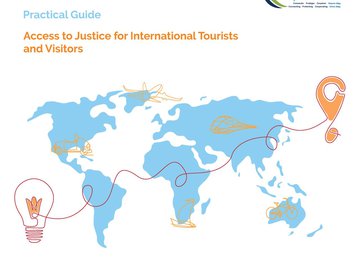Views
Chinese courts made decision taking into account of the Hague Choice of Court Convention
China has signed the Hague Choice of Court Convention on 12 September 2017, but has not yet ratified this Convention. The Hague Choice of Court Convention has not entered into force in China. However, Shanghai High Court has already relied on the Hague Choice of Court Convention to make decision.
In Cathay United Bank v Gao, Shanghai High Court, (2016) Hu Min Xia Zhong No 99, the appellant, a Taiwan commercial bank, and the respondent, a Chinese citizen resident in Shanghai, entered into a Guarantee contract. It included a clause choosing Taiwan court as the competent court to hear disputes arising out of the contract. This clause did not specify whether it was exclusive or not. Chinese law does not provide how to decide exclusivity of a choice of court agreement. Facing the legal gap, Shanghai High Court took into account Article 3 of the Hague Choice of Court Convention 2005 and decided that choice of court agreements should be exclusive unless the parties stated otherwise. The Shanghai High Court thus declined jurisdiction in favour of Taiwan Court.
This decision was made on 20 April 2017, even before China signed the Hague Choice of Court Convention. Since the Hague Choice of Court Convention has not entered into force in China, it should not be directly applied by Chinese courts in judicial practice. The question is whether Chinese courts could ‘take into account’ of international conventions not being effective in China to make decision. Although Article 9 of the Chinese Supreme Court’s Judicial Interpretation of Chinese Conflict of Laws Act allows the Chinese courts to apply international conventions, which have not entered into effect in China, to decide the parties’ rights and obligations, such an application is subject to party autonomy. In other words, parties should have chosen the international convention to govern their rights and obligations. Article 9 does not apply to international judicial cooperation conventions that do not deal with individuals’ substantive rights and are not subject to party autonomy. Perhaps, a more relevant provision is Article 142(3) of the PRC General Principle of Civil Law, which provides that international customs or practice may be applied to matters for which neither the law of the PRC nor any international treaty concluded or acceded to by China has any provisions. Arguably, the Hague Choice of Court Convention represents common practice adopted internationally and forms a source to fill the gap in the current Chinese law.
EU Member State sees opportunities in Brexit: Belgium is establishing a new English-language commercial court
Expecting higher demands for international commercial dispute resolution following Britain’s departure from the EU, Belgium plans to set up a new English-language commercial court, the Brussels International Business Court (BIBC), to take cases away from the courts and tribunals in London. This decision was announced on 27 Oct 2017. This BIBC is designed to address disputes arising out of Brexit and major international commercial disputes. The court will take jurisdiction based on parties’ choice, and will do the hearing and deliver judgments in English. The parties would have no right to appeal. BIBC combines elements of both traditional courts and arbitration. See comments here.
Although Brexit may cause uncertainty to litigants in the UK, a survey suggests that the EU judicial cooperation scheme is not the main reason for international parties choosing London to resolve their disputes. The top two factors that attract international litigants to London are the reputation and experience of English judges and combination of choice of court clauses with choice of law clauses in favor of English law, followed by efficient remedies, procedural effectiveness, neutrality of the forum, market practice, English language, effective UK-based counsel, speed and enforceability of judgments. Furthermore, Brexit will not affect the New York Convention and would less likely affect London as an arbitration centre. It may be more reasonable to suggest that the main purpose of BIBC is not to compete with London at the international level, but to offer additional judicial tool and become a new commercial dispute resolution centre within the EU to attract companies and businesses to Brussels.
CJEU on the place of the damage under Article 7(2) of Brussels Ia as regards violation of personality rights of a legal person
First personal impressions presented by Edina Márton, LLM, PhD (Saarbruecken)
For jurisdictional purposes, the localisation of cross-border violations of personality rights under European instruments, such as Regulation (EU) No 1215/2012 (Brussels Ia), has attracted the attention of a considerable number of scholars and often led to different legal solutions in the national judicial practice. At EU level, besides Shevill (C-68/93; ECLI:EU:C:1995:61) as well as eDate and Martinez (C-509/09 and C-161/20; ECLI:EU:C:2011:685), since 17 October 2017, a third judgment in case Bolagsupplysningen (C-194/16; ECLI:EU:C:2017:766) has given further clarification in this area. In the recently delivered judgment, the ECJ specified one of the two limbs of the connecting factor “where the harmful event occurred or may occur” under Article 7(2) of Brussels Ia, namely the place of the alleged damage. Read more
News
Out Now: Alexander DJ Critchley, The Application of Foreign Law in the British and German Courts
 Alexander DJ Critchley has added an enriching installment to Hart’s renowned Studies in Private International Law Series entitled “The Application of Foreign Law in the British and German Courts”.
Alexander DJ Critchley has added an enriching installment to Hart’s renowned Studies in Private International Law Series entitled “The Application of Foreign Law in the British and German Courts”.
The author has extensive experience as solicitor in Scots law with a specialisation in family law. His book is the publication of a doctoral thesis completed with distinction at the university of Tübingen (Germany). The blurb reads as follows:
This book explores the application of foreign law in civil proceedings in the British and German courts. It focuses on how domestic procedural law impacts on the application of choice of law rules in domestic courts. It engages with questions involved in the investigation and determination of foreign law as they affect the law of England and Wales, Scotland, and Germany. Although the relevant jurisdictions are the focus, the comparative analysis extends to explore examples from other jurisdictions, including relevant international and European conventions. Ambitious in scope, it expertly tracks the development of the law and looks at possible future reforms.
Please check out Hart’s banner at the top of this page for special discounts for CoL readers.
First view of second issue of ICLQ for 2023
The first view of the second issue of ICLQ for 2023 contains a private international law article that was published online just recently:
S Matos, Arbitration Agreements and the Winding-Up Process: Reconciling Competing Values
Courts in a number of jurisdictions have attempted to resolve the relationship between winding-up proceedings and arbitration clauses, but a unified approach is yet to appear. A fundamental disagreement exists between courts which believe that the approach of insolvency law should be applied, and those which prefer to prioritise arbitration law. This article argues that a more principled solution emerges if the problem is understood as one of competing values in which the process of characterisation can offer guidance. This would allow both a more principled approach in individual cases, and a more coherent dialogue between courts which take different approaches to the issue.
Just published: HCCH Practical Guide – Access to Justice for International Tourists and Visitors
 This week the Hague Conference on Private International Law (HCCH) published the Practical Guide – Access to Justice for International Tourists and Visitors. The HCCH news item is available here.
This week the Hague Conference on Private International Law (HCCH) published the Practical Guide – Access to Justice for International Tourists and Visitors. The HCCH news item is available here.
As indicated in the Guide, this document “is intended to assist international tourists and visitors to foreign countries seeking access to justice for disputes arising from their tourism experience by providing information on online dispute resolution mechanisms that may be available and HCCH legal instruments that may be relevant in a given case.”
There are a few aspects of the Guide that are worthy of note:
First, the definitions of a visitor and a tourist are interesting.
A “visitor” is considered to mean “a traveller taking a trip to a main destination outside their usual environment, for less than a year, for any main purpose (business, leisure, or other personal purpose) other than to be employed by a resident entity in the country or place visited.”
A “tourist”: “A visitor (domestic, inbound, or outbound) is classified as a “tourist” if their trip includes an overnight stay.”
These definitions are taken from the United Nations World Tourism Organization (UNWTO).
Secondly, Part I of this Guide provides a list of online dispute resolution platforms, although some are not specific to international tourists and visitors. Among the governmental initiatives are: EU Online Dispute Resolution Platform (European Commission), Concilianet de PROFECO (Mexico) and Consumidor.gov.br (Brazil). Among the private initiatives are: Airbnb Online Resolution Centre and Endispute™.
Thirdly, Part II of this Guide sets out examples of common claims made by tourists and visitors such as lost baggage, cruise cancelled due to weather, and damage to property at hotel. These examples are merely indicative and of course do not constitute legal advice.
All in all it makes an interesting read and its layout is more easily readable on different devices. Nevertheless, it does make me wonder to what extent this document would actually help tourists and visitors in times of trouble.


